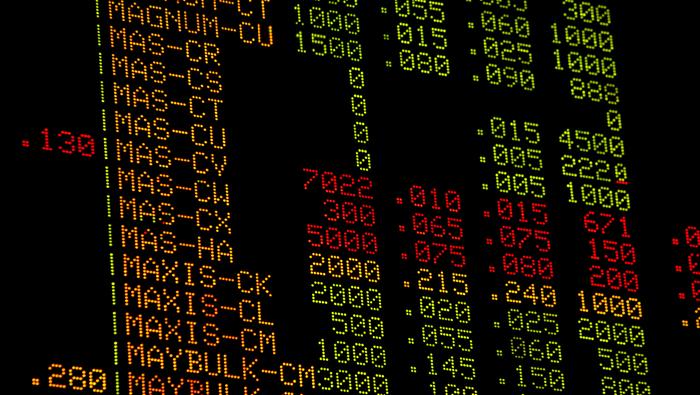
Nathan Strik, the co-manager of the reit fidelity fund, has helped the fund raise Rs 1,125 crore. The funds will pay cash redemption proceeds. Typically, the funds satisfy redemption requests by using available cash or by selling portfolio securities. They may borrow money from another fund, or other financial institutions through reverse repurchase agreements. These transactions could occur under normal market conditions. But these methods may have unintended consequences, such as limiting the amount of cash the Funds can borrow.
reit fidelity raises Rs 1,125 crore
Mindspace Business Parks REIT has been backed by Blackstone as well as K Raheja Corp. The company plans on raising Rs 4,500 million through a public sale and a fresh issuance. The company has already received commitments of Rs 1,125 crore at Rs 275 per share, and plans to sell the rest of the shares to strategic investors. The company's public offering is set to begin on July 27.

Nathan Strik is co-manager
Nathan Strik, who is responsible for managing other funds since August 2018, was one of the fund's co-managers. Since 2002, he has been a portfolio manager and researcher for Fidelity Investments. The fund's statement contains additional information about his compensation and other accounts that he manages. The statement includes the fund's investment objectives as well as risk factors and performance measures.
Funds redeem redemption proceeds in cash
Redeemment proceeds from mutual funds are often paid in cash, rather than in securities. Some funds offer a bank wire redemption option. To redeem by wire, investors must provide information about their bank account 30 days before their first redemption request. The process takes about two days. The first day is used to process your request. On the second day, the funds are transferred to your account. Dividends and capital gains are paid periodically and you can choose to receive them by check or wire. You can also make automatic deposits to your local bank account.
Funds could borrow from other fund
For real estate investments, fidelity funds for Reit may borrow from other fund firms. This means that the investment may not be as liquid as its underlying securities. They are also not available for trading on a public exchange, and may have a longer settlement period. These funds are ideal for investors with a long-term horizon, as they have the lowest risk. Investors must also understand the risks of borrowing money from other sources.

Funds may use reverse repurchase agreements
Reverse-repurchase agreements are a type or financial contract where one party agrees that it will purchase a security in the future at a particular price. The value of collateral must be equal to or higher than the fair market value of cash invested in the security at the time the agreement is entered into. These agreements can either be bilaterally or centrally cleared. Reverse repurchase agreements can be used by fund managers to limit credit risk.
FAQ
What is the role of the Securities and Exchange Commission?
SEC regulates brokerage-dealers, securities exchanges, investment firms, and any other entities involved with the distribution of securities. It also enforces federal securities law.
What is the distinction between marketable and not-marketable securities
The differences between non-marketable and marketable securities include lower liquidity, trading volumes, higher transaction costs, and lower trading volume. Marketable securities can be traded on exchanges. They have more liquidity and trade volume. They also offer better price discovery mechanisms as they trade at all times. This rule is not perfect. There are however many exceptions. For example, some mutual funds are only open to institutional investors and therefore do not trade on public markets.
Non-marketable securities tend to be riskier than marketable ones. They typically have lower yields than marketable securities and require higher initial capital deposit. Marketable securities tend to be safer and easier than non-marketable securities.
A large corporation may have a better chance of repaying a bond than one issued to a small company. The reason is that the former will likely have a strong financial position, while the latter may not.
Investment companies prefer to hold marketable securities because they can earn higher portfolio returns.
Who can trade in stock markets?
The answer is yes. However, not everyone is equal in this world. Some have better skills and knowledge than others. So they should be rewarded.
However, there are other factors that can determine whether or not a person succeeds in trading stocks. For example, if you don't know how to read financial reports, you won't be able to make any decisions based on them.
Learn how to read these reports. Understanding the significance of each number is essential. And you must be able to interpret the numbers correctly.
You will be able spot trends and patterns within the data. This will allow you to decide when to sell or buy shares.
If you are lucky enough, you may even be able to make a lot of money doing this.
What is the working of the stock market?
A share of stock is a purchase of ownership rights. The company has some rights that a shareholder can exercise. He/she may vote on major policies or resolutions. He/she may demand damages compensation from the company. He/she may also sue for breach of contract.
A company cannot issue more shares that its total assets minus liabilities. It's called 'capital adequacy.'
A company that has a high capital ratio is considered safe. Companies with low ratios of capital adequacy are more risky.
Are bonds tradable?
They are, indeed! You can trade bonds on exchanges like shares. They have been for many, many years.
The main difference between them is that you cannot buy a bond directly from an issuer. They can only be bought through a broker.
Because there are less intermediaries, buying bonds is easier. This means that you will have to find someone who is willing to buy your bond.
There are many different types of bonds. Some bonds pay interest at regular intervals and others do not.
Some pay quarterly, while others pay interest each year. These differences make it easy compare bonds.
Bonds can be very useful for investing your money. You would get 0.75% interest annually if you invested PS10,000 in savings. If you were to invest the same amount in a 10-year Government Bond, you would get 12.5% interest every year.
If you were to put all of these investments into a portfolio, then the total return over ten years would be higher using the bond investment.
How Does Inflation Affect the Stock Market?
Inflation has an impact on the stock market as investors have to spend less dollars each year in order to purchase goods and services. As prices rise, stocks fall. It is important that you always purchase shares when they are at their lowest price.
Statistics
- Ratchet down that 10% if you don't yet have a healthy emergency fund and 10% to 15% of your income funneled into a retirement savings account. (nerdwallet.com)
- "If all of your money's in one stock, you could potentially lose 50% of it overnight," Moore says. (nerdwallet.com)
- US resident who opens a new IBKR Pro individual or joint account receives a 0.25% rate reduction on margin loans. (nerdwallet.com)
- The S&P 500 has grown about 10.5% per year since its establishment in the 1920s. (investopedia.com)
External Links
How To
How to Trade in Stock Market
Stock trading involves the purchase and sale of stocks, bonds, commodities or currencies as well as derivatives. Trading is French for traiteur. This means that one buys and sellers. Traders purchase and sell securities in order make money from the difference between what is paid and what they get. This is the oldest type of financial investment.
There are many ways to invest in the stock market. There are three basic types: active, passive and hybrid. Passive investors do nothing except watch their investments grow while actively traded investors try to pick winning companies and profit from them. Hybrid investors take a mix of both these approaches.
Index funds track broad indices, such as S&P 500 or Dow Jones Industrial Average. Passive investment is achieved through index funds. This is a popular way to diversify your portfolio without taking on any risk. You can just relax and let your investments do the work.
Active investing means picking specific companies and analysing their performance. Active investors look at earnings growth, return-on-equity, debt ratios P/E ratios cash flow, book price, dividend payout, management team, history of share prices, etc. They then decide whether or not to take the chance and purchase shares in the company. They will purchase shares if they believe the company is undervalued and wait for the price to rise. They will wait for the price of the stock to fall if they believe the company has too much value.
Hybrid investing blends elements of both active and passive investing. You might choose a fund that tracks multiple stocks but also wish to pick several companies. This would mean that you would split your portfolio between a passively managed and active fund.